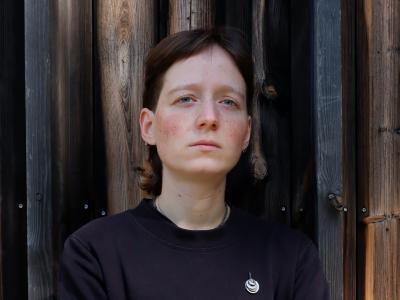
Dr Evelyn Whorrall-Campbell is a Postdoctoral Fellow for 2024-25, and a researcher, writer and artist. Informed by their creative work, Evelyn’s research attempts to develop strategies of trans theorising and practice that challenge the foreclosure of gender transition as material reality. Their work has been shown, performed, read at TACO!, Kaunas Artists’ House, Auto Italia, Kupfer Project and Kingsgate Project Space.
Entitled 'Cracking the Queer Egg, or, A Short History of Trans British Art,' my IASH postdoctoral project offers the first survey of transgender artists working in the UK in the late twentieth century. Contrary to the majority of scholarship on transgender artistic practice, which centres the US in narratives of gender experimentation, I demonstrate how British artists and organisers were critical participants in new political and aesthetic debates about the relationship between gender and sexual identity. I identify novel artistic communities, practices and theories that took shape as ‘transgender’ emerged alongside ‘queer’ as a new identity category and disciplinary field of study. I indicate how queer aesthetics and politics were central to expanding and limiting novel late twentieth-century conceptions of gender. More than recuperation, however, this project also interrogates the disciplinary difficulties found in present trans studies, arguing that these impasses in thinking transgender’s history are founded in the political horizons of the 1980s and 1990s.
The UK in the late twentieth century was a significant, albeit precarious, site of radical queer and transgender artistic practice and epistemic change. Through archival work, I assemble a diverse corpus of artworks, publications, films and exhibitions, examining these objects for the first time as an interlinked corpus of queer and trans cultural production. In articulating the relationship between queer and transgender as interrelated aesthetic and theoretical positions in the late twentieth century, I offer a critique of early queer theory, indicating its reliance upon (racialised) figurations of transsexuality to constitute queer as a political subjectivity and aesthetic practice. I draw on recent trans materialist scholarship to argue that these figurations were not only central to queer imaginings, but also transgender’s own political horizons. I argue that transgender theory’s initial interest in the possibilities of digital technology produced gendered identity as white through appeals to racialised concepts of bodily plasticity. Through critique, I hope to reinvest in these historical objects of queer and transgender cultural production to offer up alternate theoretical formations for the future of trans studies.
